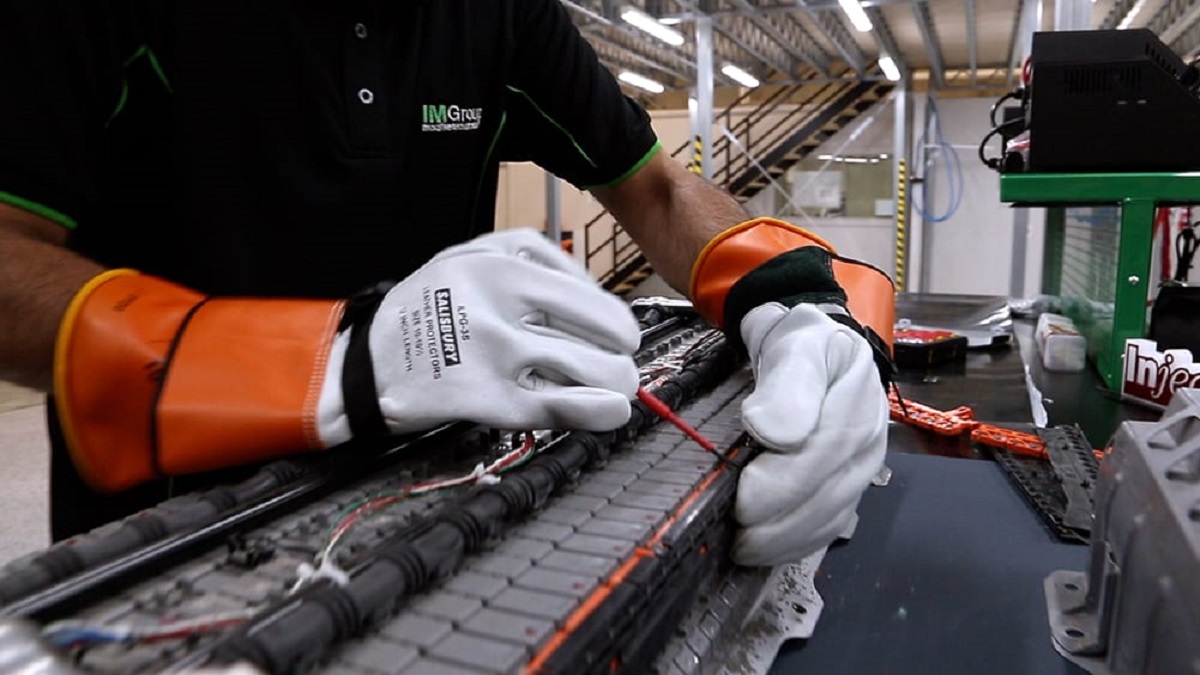
In the ever-evolving landscape of automotive technology, hybrid vehicles have emerged as a promising solution to address environmental concerns and fuel efficiency. At the heart of these innovative vehicles lies a critical component known as the hybrid battery. This article explores the intricacies of hybrid batteries, their functionality, and provides a comprehensive review of their performance in modern automobiles.
Understanding Hybrid Batteries
What is a Hybrid Battery?
A hybrid battery, also known as a traction battery, is a key component in hybrid vehicles that combines the benefits of both traditional internal combustion engines and electric power. Unlike conventional vehicles, which rely solely on gasoline or diesel engines, hybrid vehicles integrate an electric motor powered by a high-voltage hybrid battery. This integration allows for improved fuel efficiency and reduced emissions, making hybrid vehicles an environmentally conscious choice for many consumers.
How Do Hybrid Batteries Work?
Hybrid batteries operate on the principle of capturing and storing energy during periods of low demand and releasing it when the vehicle requires additional power. The integration of regenerative braking further enhances their efficiency. During braking, the electric motor functions as a generator, converting kinetic energy into electrical energy and storing it in the hybrid battery. This stored energy can then be utilized to assist the gasoline engine during acceleration or to power the vehicle at low speeds.
Components of a Hybrid Battery
A typical hybrid battery consists of multiple cells, each containing a positive and negative electrode immersed in an electrolyte solution. These cells are connected in series to achieve the required voltage. In addition, a Battery Management System (BMS) monitors and manages the health of individual cells, ensuring optimal performance and longevity of the hybrid battery.
Reviewing Hybrid Battery Performance
Advantages of Hybrid Batteries
- Enhanced Fuel Efficiency: One of the primary advantages of hybrid batteries is the significant improvement in fuel efficiency. The electric motor assists the internal combustion engine, especially during stop-and-go traffic, resulting in reduced fuel consumption.
- Reduced Emissions: Hybrid vehicles contribute to environmental sustainability by producing fewer emissions compared to their traditional counterparts. The ability to operate on electric power at lower speeds minimizes the overall carbon footprint of the vehicle.
- Regenerative Braking: The incorporation of regenerative braking not only improves fuel efficiency but also reduces wear and tear on traditional braking systems. This regenerative process enhances the overall lifespan of the vehicle’s braking components.
Challenges and Concerns
- Cost of Hybrid Battery Replacement: Despite their numerous advantages, hybrid batteries pose a potential financial challenge when it comes to replacement. The cost of a hybrid battery replacement can be substantial, leading some consumers to question the long-term economic viability of owning a hybrid vehicle.
- Limited Electric-Only Range: While hybrid vehicles offer improved fuel efficiency, their electric-only range is often limited compared to fully electric vehicles. This limitation can be a concern for those looking to minimize their reliance on traditional fuel sources.
- Complexity of Repairs: Repairing hybrid vehicles, especially their battery systems, requires specialized knowledge and equipment. This can make maintenance and repairs more challenging and expensive, potentially discouraging some consumers from choosing hybrid options.
The Future of Hybrid Batteries
As technology continues to advance, the future of hybrid batteries looks promising. Ongoing research and development focus on addressing current challenges and improving the overall performance and affordability of hybrid vehicles. Advancements in battery technology, such as the development of solid-state batteries, have the potential to revolutionize the hybrid vehicle landscape, offering even greater efficiency and longevity.
Hybrid Service and Battery Replacement
Regular hybrid service is essential to ensure the longevity and optimal performance of hybrid batteries. Routine maintenance includes checking the battery’s state of charge, inspecting the connections, and verifying the overall health of the Battery Management System. Hybrid service by certified technicians is crucial to address any issues promptly and maintain the reliability of the hybrid vehicle.
In some cases, hybrid battery replacement becomes necessary due to natural wear and tear or unforeseen issues. When faced with the prospect of hybrid battery replacement, it is advisable to consult with authorized service centers or qualified technicians specializing in hybrid vehicles. These professionals have the expertise to diagnose and address battery-related issues accurately.
Conclusion
In conclusion, hybrid batteries play a pivotal role in the success and popularity of hybrid vehicles. Their ability to combine the benefits of traditional combustion engines with electric power contributes to enhanced fuel efficiency and reduced emissions. Despite the challenges associated with hybrid batteries, ongoing advancements in technology and a commitment to sustainable transportation indicate a promising future for hybrid vehicles.
FAQs
Q1: How long does a hybrid battery last?
A1: The lifespan of a hybrid battery varies depending on factors such as driving habits, climate, and vehicle model. On average, hybrid batteries can last between 8 to 15 years.
Q2: Can a hybrid battery be repaired, or is replacement the only option?
A2: In some cases, hybrid battery issues can be repaired, such as replacing individual cells. However, replacement is often necessary for more significant problems or as the battery reaches the end of its lifespan.
Q3: Are hybrid vehicles more expensive to maintain than traditional vehicles?
A3: While the initial cost of hybrid vehicles may be higher, they can be cost-effective in the long run due to improved fuel efficiency. Maintenance costs, including hybrid service and potential battery replacement, should be considered when evaluating overall expenses.
Q4: Is hybrid service available at all automotive service centers?
A4: Hybrid service requires specialized knowledge and equipment. It is recommended to seek service from authorized dealerships or certified technicians with experience in hybrid vehicles to ensure accurate diagnostics and repairs.
Q5: How often should hybrid batteries be inspected as part of routine maintenance?
A5: Routine hybrid service, including battery inspections, is recommended at least once a year or as per the manufacturer’s guidelines. Regular checks help identify potential issues early and ensure the overall health of the hybrid battery.

Tech Hub Digital, a one-stop destination for complete technology-related information.

